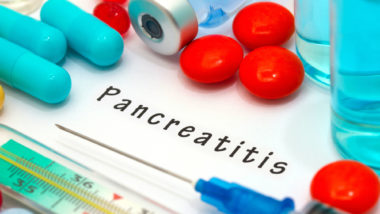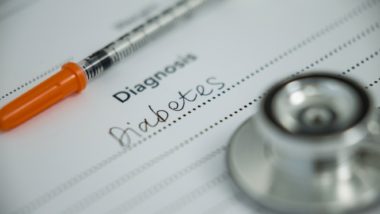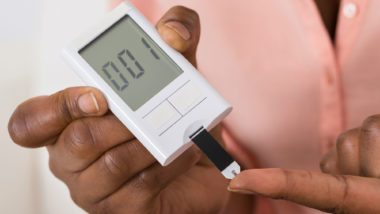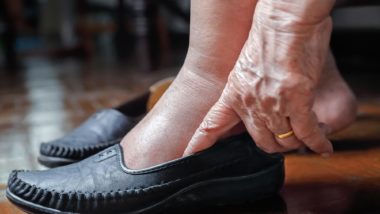Top Class Actions’s website and social media posts use affiliate links. If you make a purchase using such links, we may receive a commission, but it will not result in any additional charges to you. Please review our Affiliate Link Disclosure for more information.
A recent Onglyza lawsuit claims that the diabetes medication caused a North Carolina woman to develop congestive heart failure.
Plaintiff Martha S. says she took Onglyza from February 2012 to August 2015 as a treatment for her type-2 diabetes. While taking the drug, Martha allegedly developed congestive heart failure – a condition she claims was a direct result of her treatment with Onglyza.
Onglyza is a DPP4 inhibitor which manages type-2 diabetes by stimulating the secretion of insulin. Insulin is usually produced following a meal, but medications like Onglyza extend the production period. Although this is effective in managing blood sugar, Martha claims that the length of the insulin production period on Onglyza is “an exponentially greater period of time than what the human body has adapted as a sufficient and safe period of time.”
Martha also argues that Bristol-Myers Squibb, AstraZeneca, and McKesson failed to properly test Onglyza before beginning to market the drug in November 2010. She argues that better testing of the drug would have revealed that Onglyza increases the risk of heart failure, congestive heart failure, and cardiac related death.
Special testing was reportedly called for by the U.S. Food and Drug Administration (FDA) in a December 2008 memo. The FDA determined that since diabetic patients are at an increased risk of cardiovascular complications, new applications for diabetic medications needed to demonstrate that their drugs did not cause an unacceptable increase in cardiovascular risk.
Although the manufacturers allegedly failed to secure this data before marketing their product, the companies conducted the SAVOR trial after allegedly making “substantial profits” from their medication. The SAVOR clinical trial, according to the AHA journal Circulation, showed that Onglyza increased the risk of heart failure.
The SAVOR trial showed that 3.5 percent of patients who were taking Onglyza ended up hospitalized for heart failure. The compared placebo group had only 2.8 percent of patients admitted to the hospital for heart failure. The risk for heart failure on Onglyza was reportedly increased by 27 percent, according to a report by diaTribe, a diabetes advocacy group.
Despite these results, the manufacturers allegedly failed to warn consumers of the risks.
“At all relevant times, Defendants had knowledge that there was a significant increased risk of adverse events associated with Saxagliptin including heart failure, congestive heart failure, cardiac failure, and death related to those events, and despite this knowledge Defendants continued to manufacture, market, distribute, sell, and profit from sales of Saxagliptin,” the Onglyza lawsuit claims.
In April 2015, the FDA Endocrinologic and Metabolic Drugs Advisory Committee reviewed the raw data from the SAVOR trials and reportedly voted 14 to 1 add warnings to the drug label. The only member who voted against this motion reportedly wanted stricter action – to remove the drug completely from the market. In April 2016, the FDA followed up on its initial safety announcement to update consumers that a review found that Onglyza and other similar drugs were linked with heart failure.
“Heart failure can result in the heart not being able to pump enough blood to meet the body’s needs,” the FDA safety announcement stated. “As a result, we are adding new warnings to the drug labels about this safety issue.”
Although new labels help inform future patients, Martha claims that she was not warned of the risks of Onglyza and therefore sustained damages due to the manufacturers’ negligence.
Heart failure, which is sometimes referred to as congestive heart failure, is typically caused by a number of conditions that affect the heart’s ability to pump blood. Coronary artery disease, which causes narrowed arteries in the heart, and high blood pressure, which gradually leaves the heart stiff and weak, are common causes of heart failure, according to the Mayo Clinic.
Symptoms of heart failure include: shortness of breath, fatigue, weakness, lower limb swelling, rapid or irregular heartbeat, reduced exercise stamina, persistent cough, white or pink mucus from cough, increased urination at night, abdominal swelling, rapid weight gain, lack of appetite, nausea, difficulty concentrating, decreased alertness, chest pain, and more.
Heart failure cannot be treated and reversed. Lifestyle changes and medication can only succeed in extending a patients’ life and improving quality of life. Medications and surgery may also help reduce the risk of sudden death due to heart failure. Patients can only truly be cured of heart failure if the cause can be reversed, which is a rare outcome.
If other interventions fail, patients may need a heart transplant in order to recover from heart failure. However, most patients have to wait a long time before a heart donor is found and transplant has significant risks such as rejection.
The Onglyza Lawsuit is Case No. 5:19-cv-00023-KKC in the U.S. District Court for the Eastern District of Kentucky.
Free Onglyza Lawsuit or Kombiglyze Lawsuit Review
Did you or a loved one suffer heart failure, cardiac failure, congestive heart failure or death after taking Onglyza or Kombiglyze XR? If so, you may be eligible to join a FREE Onglyza lawsuit and Kombiglyze lawsuit investigation and pursue compensation for your injuries. Fill out the form on this page to see if you qualify!
ATTORNEY ADVERTISING
Top Class Actions is a Proud Member of the American Bar Association
LEGAL INFORMATION IS NOT LEGAL ADVICE
Top Class Actions Legal Statement
©2008 – 2024 Top Class Actions® LLC
Various Trademarks held by their respective owners
This website is not intended for viewing or usage by European Union citizens.
Get Help – It’s Free
Join a Free Onglyza Lawsuit or Kombiglyze XR Lawsuit Investigation
If you have been injured or if you lost a loved one due to Onglyza side effects or Kombiglyze XR side effects such as heart failure, cardiac failure, or congestive heart failure, you may have a legal claim. See if you qualify to pursue compensation and join a free Onglyza or Kombiglyze XR investigation by submitting your information for a free case evaluation.
An attorney will contact you if you qualify to discuss the details of your potential case.
PLEASE NOTE: If you want to participate in this investigation, it is imperative that you reply to the law firm if they call or email you. Failing to do so may result in you not getting signed up as a client or getting you dropped as a client.
Oops! We could not locate your form.













